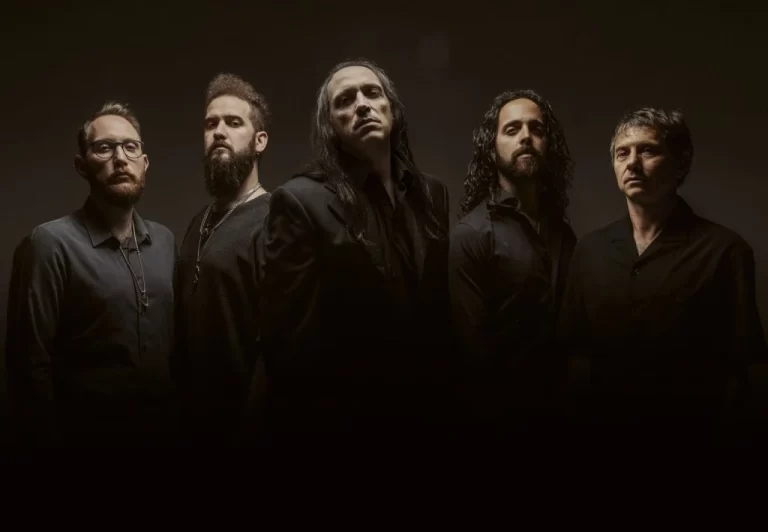Interviewing in the Zoom age is a strange experience. Where once artists were faceless entities on the other end of the phone, now you often find yourself invited into their personal space, a situation that is a touch nerve wracking, not least because it can feel somehow invasive. Joanna Connor, however, is one of those people who just naturally makes you feel at ease and, as a result, our interview ends up feeling more like a chat between friends than a formal discussion documenting her forthcoming, Joe-Bonamassa produced album. Possessed of an infectious laugh and always ready with an anecdote from her extensive experience as a musician, Joanna brings the experience of recording with Joe vividly to life, and it’s clear that the experience was nothing but positive, despite Joe’s insistence that he becomes a “benevolent dictator” in the producer’s chair. Indeed, what soon becomes clear is that, with Joe essentially clearing away the responsibilities that go with recording, he gave Joana the space to rock – an ideal situation for a performer who prefers to play in the moment.
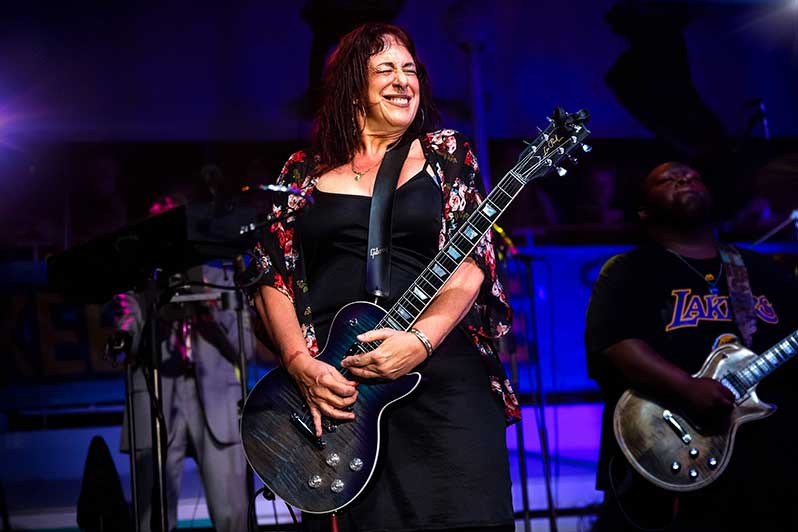
Thank you so much for taking this time to speak with me, it’s really nice to have this chance to have a chat.
Thank you so much – thanks for having me!
It’s an absolute pleasure. I had a whole opening gambit planned, but then I found an interview you did around the time of Rise where you were talking about rhythm guitar and how you felt it was unappreciated and that really resonated with me – I think you can build all sorts of really cool layers into the music when you have a strong rhythm guitarist, so I wanted to ask you about that first…
Well, you know. The thing that always attracted me to so many different styles of music was the rhythms guitar. Everything from James Brown to the Rolling Stones to Led Zeppelin, you know, whatever… the stuff Ry Cooder did. The stuff just goes on and on.
And I couldn’t figure out how to play lead guitar for a long time. I don’t know what it was, but rhythm was always something I had in me, which was a gift and I appreciate it… but you’re right, I feel like with the rhythm guitar you’re literally composing in a sense. You’re composing, you’re grooving. It’s like so many things are going on that are so vital and also so much fun. I can sit there grooving… and I’m really blessed in Chicago, there are so many great bass players and drummers and the band I have now, the bass player I have now is outstanding; so, just sitting back in the pocket and grooving with them and not singing or playing lead… I just think it’s the best, you know.
And you can get such a cool energy, especially because you can experiment with different chordings and patterns, I think it’s an underrated skill…
Exactly. I think it’s highly ignored by a lot of people. One thing that drives me crazy is if I go to the really accomplished guitar players, like at the top of the ladder, of course they do everything. But even some really excellent guitar players, I’m like “really? That’s your rhythm guitar?” [laughs]
That sounds mean, but there’s so much more you can do… not by being busy, but by being, you know, more of a major contributor, let’s say. And like you said, you can start with one pattern and switch to another, and it’s almost endless. I think it’s fascinating.
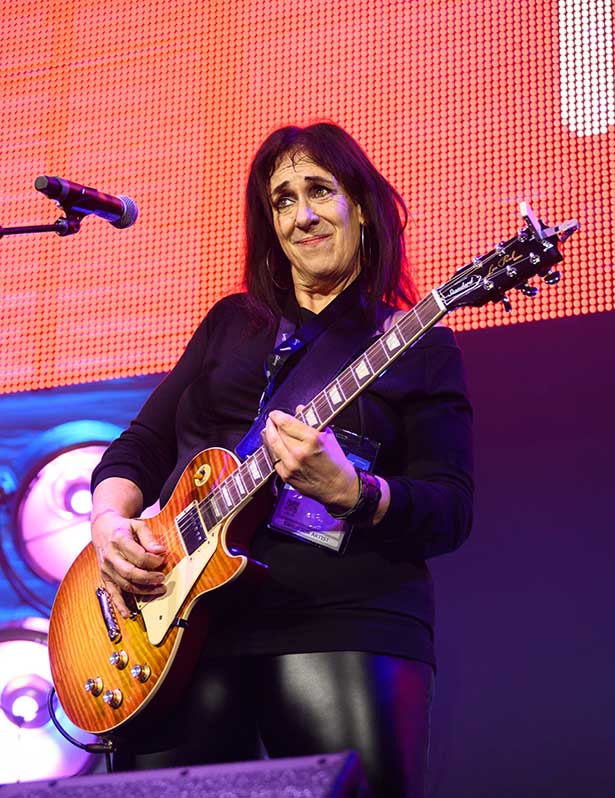
Obviously, we’re here today because you’ve got a brand-new album coming out and I’ve been following some of the stories, and it starts off many years ago where Joe opened for you, so there’s a serendipity there…
Oh, it’s so funny. I think I told this story, but I played at the House of Blues in the restaurant. Upstairs, there’s a big hall but then, in the restaurant there’s the “back porch” stage” – and a lot of times you’re dinner music, you know?
So, the booking guy called me on the day of the show and told me “hey, there’s this young guitarist, he’s going to open up for you for an hour or so…” And my first thought was I didn’t care who it was, it was like “oh good, I don’t have to play for as long and I still get paid the same money!” [laughs]
So, I was like “sure, I don’t care who it is!” And it was Joe Bonamassa, so, there you go. Yeah. He’s come a long, long way….
So, he retweeted a video you put out and you connected and… he ended up producing. For me, the role of a producer is always an interesting one, because it seems to me that they’re the one who has to tread that line of art and commerce, and it’s been said already that he is very hands on, so how did that go? Did you set out boundaries at the first meeting, or was there an agreement that it would be that way from the get-go? How did that work?
Right from the get-go, when he first came to me with his tweet saying he could help me. We started conversing and he said he wanted to record a record, but he was clear that he really had an idea of what he wanted to do with me.
So, he wanted to keep talking and he had a vision for things, you know? He wanted to truncate what I do, he wanted to bring out the best in me and he wanted to capture lightning in the bottle… and all this sort of stuff – “no filler, all thriller” … you know?
So, of course, I thought it sounded wonderful and we discussed it over a few months from like the May of 2019, and then we went in to the studio in February 2020, so it was about six months of occasional conversation. Then we met at his place, with Josh Smith, and him and I hammered out what tunes he wanted to do, and then we were doing arrangements.
And he did come to see me in November, at my gig in Chicago – he was on tour. And he was like: “I want you to trust me, do you feel like you can trust me?” and I was like “I will do anything you say!” I was excited.
You know, I’ve done records, I’ve produced my own records. I’ve had my flights of fancy and whatever, so yeah… Joe Bonamassa has a good track record [laughs], so I was like: “I think I can trust you Joe, yeah!”
I guess, if you’ve had that experience of producing as well, it’s such a pressure on the artist when you also have to be the ears and you’re responsible for everything; so from that perspective it sounds like it was kind of nice for you to be able to go into an environment where you didn’t have to worry about that side of things.
It was. It really was. I did work with a producer three records back, in the early 90s – Jim Gaines, who did Stevie Ray, Santana and a lot of blues people after me. He was a great guy, and I learned a lot. But there were parts where I didn’t quite see or hear what he was hearing. So, I felt a little uncomfortable and I think you can tell on the record, particularly one. I think you can hear it… or at least I can hear it.
So, you know, there’s always that trepidation, like “will that happen again?” or “was I too young then? Was I too naïve?” But, no, it really clicked. Everything about the session was just purely magical, really. It just felt right. And we did it quickly, we did it in four days, so it was bim-bam. But that’s what we wanted. We didn’t want anything too overproduced because, you know, I hate to say it, a lot of blues albums (or blues rock albums), they’re over produced and it takes some of the life blood out of it, so we wanted to inject that back in.
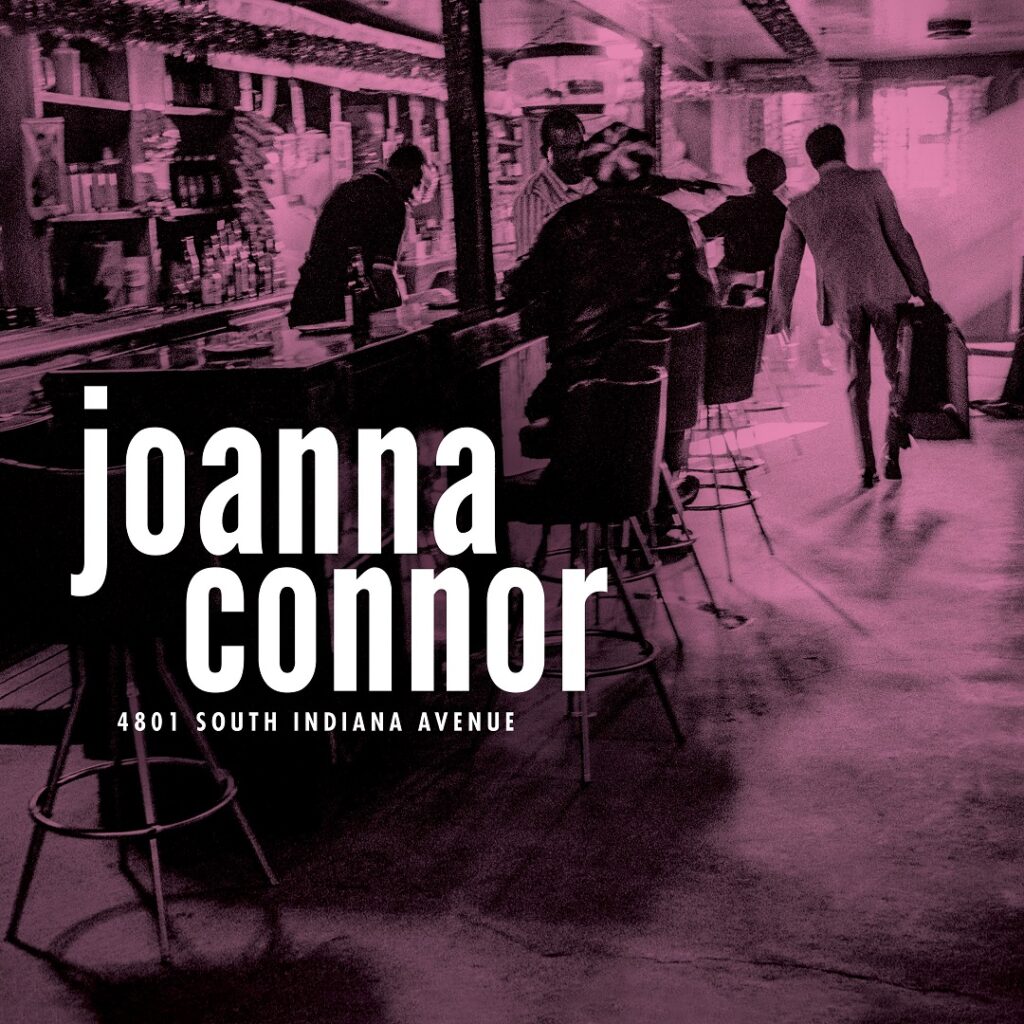
One of the things that made me chuckle a bit in the interview you put out was you said that Joe looked at your guitar and said OK; then he looked at your pedals and said “nah!” And I thought about how precious effects pedal collections are to guitarists and I thought, “that must have been tough!” So, when that happened, did you just go straight into the amp, or did you get a whole new selection of pedals or what?
Well, I was kinda hoping I would get a whole new selection! [laughs]
He did bring out this thing called the Klon, which is this super-expensive, really sought-after overdrive and I liked it, and he was like “nah!” So, I was like “nooooo!” [laughs]
So, I’ve done some tracks cut straight through an amp on a record, but only something super-jazzy, you know, where I wanted that super-clean, sparkling tone. I usually just… I love playing with pedals and that was the only time in the process where I was like: “oh, crap!” [laughs] but it sounded good. And I didn’t play any rhythm on that record… well, I played a little, I shouldn’t say none… some cuts, I play rhythm. But it was all lead, and mostly slide, so I was like “OK, I can live with this sound, It’s good!”.
It kind of looks, from interviews you’ve done in the past, that you prefer life on stage and the record is more of a thing that you do to get to the stage…
Studios usually terrify me [laughs]. I’m not one of those people who are like [adopts bright, breezy tone] “ooh, I’m going into the studio!”
I’m always like [adopts heavier, more downbeat tone] “oh, we’re going into the studio!”
You’re just, like, in this room, and usually it sounds pretty dead and there’s always someone there watching; and I’ve been a live player for decades, so I’m used to that environment. You know, it’s always kind of odd. And I always have this neurotic thing in the back of my head, like doing a pass and I’m wondering if I’m doing it right and if they’re going to get upset because they’re spending money. It’s kind of crazy.
The last two records I did, I really took my time and did it in bits of pieces, which was actually better for me. So, it was like “OK, we did a few hours, let’s leave!” Because, you know, on some of the other records we’d do fourteen hours, and it’s really tiring. There’s so much concentration. So, yeah. I’m a live player. And Joe knew that. So, he wanted to capture that on this record.
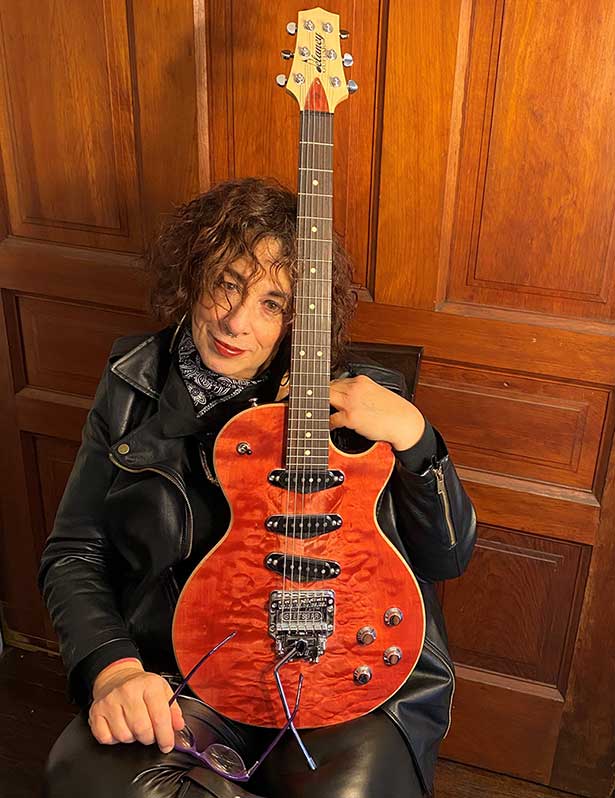
There’s a lot of pressure, I think, particularly on singing. You know, you go into the studio and step up the microphone and it’s almost inevitable that the first take you choke, and everyone’s looking at you from the control room… are you one of those people who prefer people to just clear out or do you not mind the “goldfish” bowl situation that so often occurs?
I hate everyone gawking at me. But this is the funny part, even playing for audiences, I would rather play for 100,000 people than 10. Because I really feel less inhibited in front of a massive crowd than in front of a few people. I feel like they’re all looking at me. It’s weird and very intimate. Some people say they love the intimacy of a club… no, I’d much rather play at a huge venue full of faceless humans. I do like to connect with the crowd, but it’s… I totally agree with you.
And the funny thing is when we did the vocals, I wasn’t in the booth, I was in the control room, with Joe and the engineer, the assistant engineer, and the manager of the studio. They were all sitting there, and I was like: “oh, this is awkward!” But Joe, I don’t know, he has the ability to make me feel OK.
It’s really important, because that’s quite a vulnerable situation to be in. If you’ve got the wrong vibe in that room, that’s going to make it twice as hard to do the job you need to do.
I totally agree with you, yeah. But he did something really kind of funny, he would try to describe it almost like a movie. He’d cue up a song and make up this whole storyline: “Imagine you’re in the club and you see a man…” and he was trying to get some emotion out of me, and he did that with every song… “and on this one I want you to channel…”
Plus, when I had difficulties, well he’s a good singer and he could show me different ways to try it, and then I could give it a shot. Whereas producers in the past, they couldn’t really sing, so they’d say: “why don’t you try blah blah blah.” And I’d look at them like: “what the hell are you talking about?!” [laughs]
But yeah, it was easy. And he was pretty funny, you know. He made me laugh a lot because he would use these really funny analogies.
For me, it’s one of the most challenging things, but it sounds like he really helped you to inhabit the vocals… and he was talking about the “punk rock energy” of your vocals and, I think, that’s an unsung part of Joe is that he always is thought of from a blues perspective, but when he straps on that flying V, he can really tear shit up as well.
Yeah, he’s funny. He and I are both kind of nerdy. I’m a little less nerdy than him, maybe. We’re both kind of introverts but, when we put the guitars on, it’s a whole other deal. When I was on his cruise and I was waiting to go (because I was going to jam with him) and he looked at me and said “Oh, I’ve got to go and be that guy now!” and I started laughing. I totally get that.
It’s an interesting transformation. I remember speaking with one producer who told me there were some people he could only get to sing if he gave them a guitar to hold whilst doing it…
Yeah. Well, you know it’s funny. I started playing as a sax player, but that was at school, you know. I did a lot of shows with orchestra, jazz band, concerts, and blah blah blah.
But then I was a singer, so I used to not be able to sing and play guitar at the same time, which is funny to me now. So, I don’t know. Now, I feel like I can play anything and sing, but I used to be kind of there with my guitar hanging there and I’d be singing, and then play, and then stop and then play… that was a long time ago. Yeah.
So, when it came to song selection, did you kick ideas to him, and he acted in an A&R kind of way?
No, him and Josh Smith chose the music. They asked me if I liked it and how I felt about it, but that was it. The only song I chose was that single that we put out. Joe said we needed like a rock tune… a boogie tune, and he asked me if I had anything, and I told him I did the song with my band, and he said we should do it, so that was it.
Wow – was that weird for you, not making those choices? Or was that all part of the experience of working in this way?
You know, I’m a person who never has a set list. So, I never…. If someone asks me for a set list, I don’t have one! They ask me what I played for the third song, and I don’t know! [laughs]
So, I’m used to going from my heart and my gut – I read the room, and it’s how I feel and what’s going on, but I’m used to adapting like that.
But, on an album, you’re trying to get some sort of journey of vibe, but this was all in the hands of Joe, then.
It was. But I think he understood… He knew me enough, from my music and seeing me play live, and seeing my videos that he knew what to bring out of me. So, it wasn’t like, he was presenting something that didn’t fit, so, yeah…
One of the cool things about slide guitar – I’ve always really liked it because you can get a sense of real human emotion out of it, and the idea of mimicking the human voice and getting the passion and the sense of depth out of it – is that what drew you to the slide in the first instance?
It’s funny. The first person who taught me slide, I was 14 and I didn’t really know what it was. I mean, I’d seen it and I was like: “oh that! Right, yeah, OK!” You know, so I’d seen Lowell George and Little Feat do that, or Bonnie Raitt, you know? But I wasn’t so familiar, but I became hooked, like immediately. Then we dove into Robert Johnson and Blind Willie Johnson and Ry Cooder and all these people and, yeah, I really… I felt that once you get the technique… For one thing you’ve really got to relax, because there’s no pressure… [at this points Joanna’s dog decides to join the conversation, necessitating a swift change of venue]
I really love the slide because it’s like the voice and whenever I would hear someone play it well, I’d be drawn to it, like “wow! That’s…” It’s a whole different beast than regular guitar. It’s just another aspect of guitar playing, but it’s a whole other world. When you’re trying to teach people, which I’m doing, how it works, you have to leave a lot of other things you’ve learnt behind on the guitar…
What I like about is that you can use and abuse it in equal measure, and you can go from these liquid David Gilmour-esque tones to the most blistering rock ‘n’ roll if you kick on the distortion and get a bit heavy handed…
Yeah, I agree!
At the moment, I guess it must be kind of tough, because (like us) you’re in this endless twilight of a lock down and you’ve got a new album coming out – what are your thoughts about promoting it? Are you thinking to do some sort of live stream, or are you waiting until you can go out on stage?
You know, we haven’t really discussed it yet, but I have a feeling that we’re going to end up doing some sort of live stream. I’m predicting in March; you know it comes out the end of February. So, my band and I (because it isn’t my band on the record), we’re going to have to get down in the basement and learn all the stuff… I mean, they’ll do it in a day, or even an hour, because they’re all like great musicians and this is blues and they’ve all played blues forever so… We’re definitely going to do something. I’ve still to discuss it with everybody, but I think that’s going to happen, because we can’t just wait for ever… and it could be forever… until we actually do a gig!
But it’s interesting, my life is always a little dramatic! So, I figure, you know, here comes the biggest break of my life and *this* happens! [laughs] Drama! All the time!
So, you worked with a completely different band? Was that a challenge walking into a room with a whole different group of musicians? What sort of lead-in time did you have?
We had no time! We went right in with no rehearsal. But it was so good. Everybody there was so good that I was like “Oh, this is fun!” Well, I knew Reese Wynans (who doesn’t?) So, I was already blown away with the fact that I was having this guy on the whole record. I was actually sitting next to him in the studio. Then, Josh Smith and Joe played, and the rhythm section were amazing, so it worked. If the rhythm section wasn’t good, I’d have been like “oh shit!” you know! “What do I do now?” But they were great. They made me very comfortable with how they played. Very Chicago. I could totally see them in my band.
It’s one of the cool things that I really like about the blues community that seems to have been fostered in the US. I come from a rock background, where everyone sits in their own boxes, and the thought of walking into a studio with an unknown band just fills me with horror! But this seems to be a common theme and it speaks to the communal atmosphere that’s built up in the blues scene…
Well, you know, it’s funny. I was watching an older documentary series, that was out in 2001 by Ken Burns, on jazz. And with Marsalis, who did play classical and jazz, I remember he talks about how he could go to a blues bar in Milwaukie, sit there and play some blues and just say “let’s hit it!” and that’s right – that’s how it goes. So, it’s like an open canvass, but I mean, most blues players are going to know a good repertoire of standards and that’s why I teach my students different types of grooves, like “this is a shuffle, this is kind of swing…”
So, blues and jazz kind of share that. I mean, jazz is way more complicated than blues but it’s different to rock. The beauty of rock is that it’s everything and every kind of style of music and it’s very original, there is no formula per se. There is kind of a formula in blues, but it is an open-ended formula. So, you have your purists who want you to play a certain way, and I’m like “whatever!” I’m not going to listen to them.
I tend to think of the blues as having a language and then you learn to speak it with your own accent and idiom, and that’s what makes it become yours.
Yeah, I agree. And if you listen to the blues, especially the old masters. You’re going to know Muddy Waters from Howling Wolf from Lightning Hopkins… it’s so unique, that’s what I love about blues. Yeah, they’re all playing the blues, but when B. B. King plays the blues, or Albert King plays the blues, it’s a whole different thing.
My last question, and thank you so much for your time – this is your fourteenth album, and you’ve had a fantastic career, but how do you feel this album sits as part of your evolution?
This is the biggest break I’ve ever had. I’ve had, way in the past, major labels sniffing around, making promises and certain actors (that I won’t mention) that wanted to help me. And I had these moments, like “this is it!”
But, this time, I feel like Joe really opened some doors for me. I think we made a great record, and it was really fun… and him and I have become friends. But I think wow, what a gift. He has a promotion machine and I’m like “OK” … but the way I feel about life, now that I’m older… when I was young, I’d have been overwhelmed, but now I figure whatever is going to be is going to be. All I can do is keep my head down, go through the storm and see what comes out the other end.
4801 South Indiana Avenue Details:
‘4801 South IndianaAvenue’ on Joe Bonamassa’s new independent blues record label Keeping The Blues Alive on 26th February 2021.
Track Listing
1. Destination (3:31)
2. Come Back Home (4:19)
3. Bad News (6:26)
4. I Feel So Good (3:35)
5. For The Love Of A Man (4:20)
6. Trouble Trouble (3:40)
7. Please Help (4:14)
8. Cut You Loose (4:09)
9. Part Time Love (5:06)
10. It’s My Time (4:39)
Track by Track
All the songs on the new album were lovingly hand-picked by Joe and Josh Smith and were ran by me for final approval. Each song was true to the original but were given a few twists and turns with subtle and not so subtle shifts in approach, rhythm, and attack.
Destination – This is a real house rocking tune written by a somewhat overlooked band called The Assassins, led by Jimmy Thackeray. It was made sweeter by the soulful background vocals of Jimmy Hall. Joe and Josh joined on as well. It’s a great showcase for my frantic and frenetic guitar work.
Come Back Home – This song features killer blues piano performed by Reese Wynans. Joe encouraged me to play some raw and old school slide guitar.
Bad News -This is a Luther Allison song, and we chose because we were all huge fans of his. I toured with him in Europe for almost ten years as his opening act, so it was an honour to record this haunting piece. Joe came up with the bell idea to further capture the mood.
I Feel So Good – This is one heavy boogie tune. The opening note I held was a fun challenge! This tune absolutely burns. Joe used some interesting microphone technique on the vocal and overdrove it purposely. The drummer (Lemar Carter) and I were flying by the seat of our pants so to speak and miraculously ended the fade out together. I particularly love the way the musicians come roaring back- all Joe’s idea!
For The Love of a Man – This is our Albert King tune! What blues album would be complete without one?
Trouble Trouble – This song features slinky horns and stellar Josh Smith guitar licks. It’s another facet of the classic blues genre that we wanted to cover.
Please Help – This is our tribute to Hound Dog Taylor. I believe he would have liked it.
Cut You Loose – This is one of my favourite songs that features a hypnotic rhythmic shift.
Part Time Love – This song is a real staple in the repertoire in Chicago. I think we did it justice. A cracking horn section really makes it shine.
It’s My Time – This song was written by Josh Smith. It was Joe’s Idea to have me do a spoken word and make some of the verses personal to me. Joe and I perform a slide duet, conjuring up Ry Cooder.
Recorded and Mixed by JJ Blair
Assistant Engineer Austin Atwood
Mastered by Bob Ludwig at Ludwig Mastering
Produced by Joe Bonamassa and Josh Smith
Executive Producer – Roy Weisman
Recorded at OceanWay Studios Nashville, TN
Musicians
Joanna Connor – Vocals, Guitar all tracks
Joe Bonamassa – Guitar on all tracks (Solos on 9 & 10)
Josh Smith – Guitar on all tracks
Reese Wynans – Keyboards
Calvin Turner – Bass
Lemar Carter – Drums and Percussion
Steve Patrick – Trumpet
Mark Douthit – Saxophone
Barry Green – Trombone
Jimmy Hall – Vocals on Track 1
Horn Arrangements by Calvin Turner


